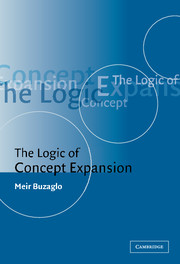Book contents
- Frontmatter
- Contents
- Preface
- Acknowledgments
- Introduction
- 1 Historical background
- 2 Frege's opposition
- 3 The grammar of constraints
- 4 Expansions as rational procedures
- 5 Implications for concepts
- 6 From words to objects
- 7 Gödel's argument
- 8 Implications for thoughts
- 9 “I was led astray by language”
- Epilogue: How do we go on from here?
- References
- Index
9 - “I was led astray by language”
Published online by Cambridge University Press: 22 September 2009
- Frontmatter
- Contents
- Preface
- Acknowledgments
- Introduction
- 1 Historical background
- 2 Frege's opposition
- 3 The grammar of constraints
- 4 Expansions as rational procedures
- 5 Implications for concepts
- 6 From words to objects
- 7 Gödel's argument
- 8 Implications for thoughts
- 9 “I was led astray by language”
- Epilogue: How do we go on from here?
- References
- Index
Summary
The weird problems discussed by philosophers and the paradoxes encountered in philosophical discourse have often been connected with the expansion of concepts. As I mentioned in chapter I, this idea was forcefully expressed by Kant, who considered the problems of dogmatic metaphysics to be the result of the incautious expansion of concepts. Questions about the cause of the world or the age of the universe come from expansions of the concepts of cause and age which are valid for what can be perceived by intuition – beyond what can be considered as phenomena, leading to illusions. We saw a variation of this view in the twentieth century in the wake of the crisis in the foundations of mathematics. Here too leading philosophers and logicians made remarks reminiscent of Kant's position. The most prominent was Russell, who suggested, in his theory of types, that Russell's paradox can be dealt with by avoiding the claim that all properties are meaningful for all objects. This analysis, like Kant's, asserts that we become involved in antinomies when we try to expand our concepts to where they are not applicable (see, for example, the first page of the first edition of the first Critique). This move has had a number of variations, some of which I present below. In fact, remnants of this view guide various projects in the foundations of mathematics, including that of ZFC (Zermelo–Fraenkel and the axiom of choice).
- Type
- Chapter
- Information
- The Logic of Concept Expansion , pp. 149 - 168Publisher: Cambridge University PressPrint publication year: 2001



